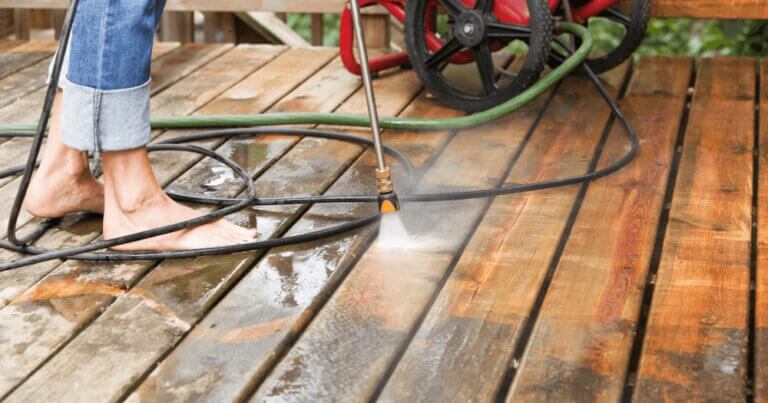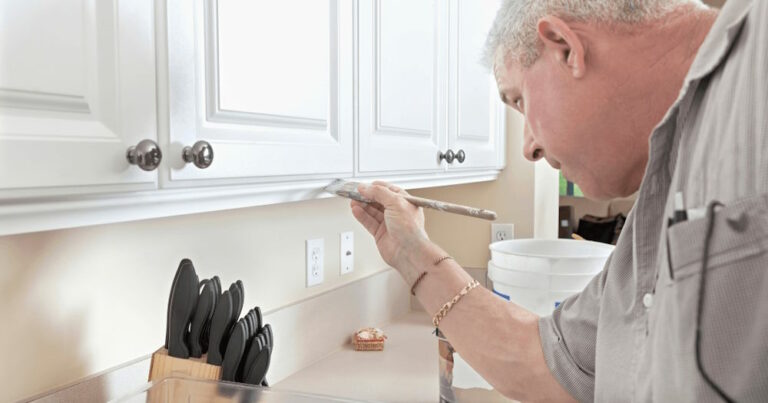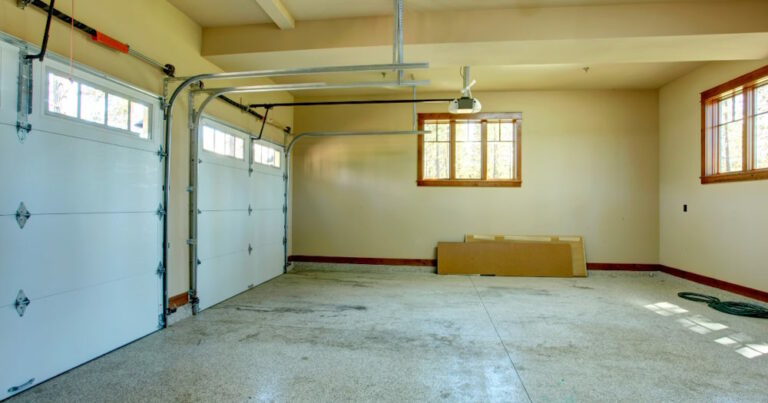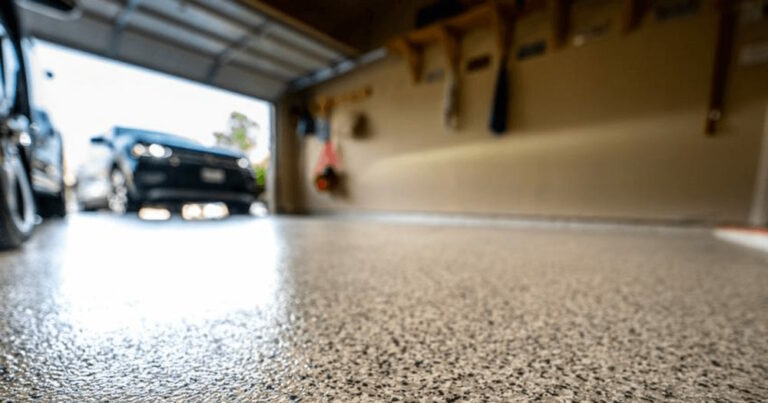When revamping your garage’s appearance, choosing the right flooring product is critical to achieving a polished look and long-lasting results. Two products that often come up in the discussion are garage floor paint vs epoxy coatings.
While both options are designed to improve the look and feel of your garage floor, they differ in several ways, including application, durability, and maintenance requirements. To make the right choice for your project, it’s essential to understand the unique characteristics of each.
Key Takeaways
- Garage floor paint and epoxy paint both enhance the look and function of your garage floor
- Garage floor paint is a cost-effective and straightforward solution for improving your garage’s appearance
- Epoxy coatings offer superior durability and resistance to abrasion, chemicals, and stains
- The decision between garage floor paint and epoxy depends on several factors, including cost, application, and maintenance requirements
- Ultimately, selecting a garage floor product will depend on your specific needs and preferences
Understanding Garage Floor Paint

Gone are the days when garage floors were plain, boring concrete floors. Nowadays, garage floors can be both functional and aesthetically pleasing, thanks to garage floor paints.
Garage floor paint is a type of coating applied to a concrete garage floor to protect them from damage caused by moisture, oil, chemicals, and other elements. It can also be used to add a decorative touch to your garage space.
Understanding the characteristics of garage floor paint is crucial in determining whether it’s the right choice for your garage flooring project. Here are some of the benefits it offers:
| Benefits of garage floor paint | Explanation |
| Cost-effective | Garage floor paint is an affordable option compared to other garage flooring solutions. |
| Easy to apply | You can apply garage floor paint yourself with minimal tools and experience. |
| Durable | Garage floor paint can last several years with proper maintenance. |
| Customizable | Garage floor paint comes in a variety of colors and finishes, allowing you to tailor the look to your preferences. |
Despite its benefits, garage floor paint also has some limitations, which we will explore in the next section.
Exploring Epoxy Coatings for Garage Floors
Epoxy floor coating is highly popular among homeowners looking to upgrade their garage floors. They offer a range of benefits, making them a top contender in the garage flooring market.
What are Epoxy Coatings?
Epoxy coatings are a mixture of resins and hardeners that combine to create a durable and long-lasting coating for your garage floor. The application of epoxy coatings can be a bit more involved than standard garage floor paint, but the results are well worth the effort.
Properties of Epoxy Coatings
One of the primary benefits of epoxy coatings is their extreme durability. They are resistant to stains, chemicals, and abrasions, making them perfect for garages that see heavy use. Epoxy coatings also offer a high gloss finish, which can enhance the overall appearance of your garage.
The Benefits of Using Epoxy Coatings for Garage Floors
There are many benefits to using epoxy coatings for your garage floors, including:
- Durability
- Resistance to stains and chemicals
- Enhanced appearance
- Easy to clean
- Long-lasting
Is Epoxy Right for Your Garage?

Exploring epoxy coatings for garage floors is a great idea if you need a long-lasting, durable finish that can stand up to heavy use. If you’re using your garage space for a workshop, to store sports equipment, or as a general storage area, then epoxy coatings may be the best choice for your needs.
“Epoxy coatings are a mixture of resins and hardeners that combine to create a durable and long-lasting coating for your garage floor.”
Factors to Consider Before Choosing
When selecting between garage floor paint and epoxy coatings, there are several factors to consider. Each option has its unique characteristics and benefits, so it’s essential to choose the one that best suits your garage flooring needs. Here, we will highlight the key factors to consider before making a decision.
1. Cost
Cost is an essential factor when choosing between garage floor paint and epoxy coatings. Garage floor paint is an affordable option that typically costs less than epoxy coatings. On the other hand, epoxy coatings come with a higher price tag due to their superior durability and extended lifespan. Take into account your budget and long-term investment goals when deciding between the two options.
2. Application Process
The application process for garage floor paint is relatively simple and straightforward, making it an excellent DIY project. Epoxy coating, however, require careful preparation, including etching and filling any cracks or holes in the concrete floor. Additionally, epoxy coatings should be applied in specific environmental conditions to ensure a successful installation. Determine your skill level and comfort with using advanced tools before deciding between the two options.
3. Maintenance Requirements
Maintenance requirements for garage floor paint and epoxy coatings differ significantly. Garage floor paint is more prone to chipping and peeling, requiring more frequent touch-ups and reapplication. Epoxy coatings, on the other hand, are highly durable and require minimal maintenance once installed. Consider your lifestyle and the amount of time you can dedicate to garage floor maintenance before choosing between the two options.
4. Durability
Both garage floor paint and epoxy coatings are durable options, but epoxy coatings offer superior strength and resistance to chemicals, oil spills, and abrasion. Epoxy coatings are a better choice if you plan to park heavy vehicles or use heavy equipment in your garage. Garage floor paint, while durable, is not as resilient, so it may experience chipping or peeling over time. Evaluate your garage’s usage and traffic to determine the best option for your needs.
Pros and Cons of Garage Floor Paint
Before deciding whether garage floor paint is the right choice for your garage flooring project, it’s essential to consider the advantages and disadvantages associated with it.
Pros:
- Affordability: Garage floor paint is an economical option compared to other flooring alternatives.
- Easy Application: Applying garage floor paint is a simple and straightforward process, making it a DIY-friendly option.
- Dries Quickly: Garage floor paint typically dries within 24 hours, so you don’t have to wait long before using your garage space.
- Customization: Garage floor paint comes in various colors and finishes, allowing you to personalize your garage flooring to your liking.
Cons:
- Not Durable: Garage floor paint is not as durable as other flooring options, meaning it may require more frequent touch-ups and reapplication.
- Prone to Chipping: Heavy use and wear can cause garage floor paint to chip and peel over time, reducing its lifespan.
- Slippery Surface: Garage floor paint can be slippery, which can pose a safety hazard for you and your family.
- Not Chemically Resistant: Oil and chemical spills and exposure can cause garage floor paint to discolor or peel, requiring touch-ups or reapplication.
Remember: It’s crucial to weigh the pros and cons of garage floor paint against your unique needs and preferences before choosing it as your garage flooring option.
Pros and Cons of Epoxy Coatings
Epoxy coatings have gained popularity in recent years due to their durability and aesthetic appeal, but they also have their drawbacks. In this section, we will explore the pros and cons of using epoxy coatings for your garage floor.
Pros of Epoxy Coatings:
- Durability: Epoxy coatings are highly durable and can withstand heavy traffic, making them ideal for garages with cars and machinery.
- Resistance to Stains and Chemicals: Epoxy coatings are resistant to stains from oil and other chemicals, making them easy to clean and maintain.
- Customizable: Epoxy coatings come in various colors and finishes, allowing you to customize your garage floor to your desired aesthetic.
- Seamless Surface: When applied correctly, epoxy coatings create a seamless surface that can cover up any imperfections in your garage floor.
Cons of Epoxy Coatings:
- Cost: Epoxy coatings are generally more expensive than garage floor paint, making them less budget-friendly.
- Longer Application Time: The preparation and application process for epoxy coatings can take longer than garage floor paint, requiring multiple layers and curing time.
- Slipperiness: Epoxy coatings can be slippery when wet, which can be a hazard in areas with high foot traffic.
- Difficult to Remove: Once applied, epoxy coatings can be challenging to remove, and you may need to hire a professional to get rid of them entirely.
Now that you know the pros and cons of using epoxy coatings for your garage floor, you can make an informed decision based on your specific needs and preferences.
Application and Preparation Process for Garage Floor Paint
When installing garage floor paint, proper preparation is crucial to ensure a long-lasting finish. Here is a step-by-step guide to help you navigate the application and preparation process:
- Clean and prep the surface: Before applying the paint, it’s essential to clean the garage floor thoroughly. Sweep the surface to remove any loose debris, then wash with a degreaser solution to remove oil stains. Afterward, use a concrete etching solution to open up the pores of the concrete surface to allow the paint to bond better. Rinse the floor with water and allow it to dry entirely before painting.
- Apply the primer: Apply a coat of primer to the surface using a paint roller or brush. Priming helps the paint adhere to the surface better and provides a more even finish. Allow the primer to dry entirely before proceeding to the next step.
- Apply the paint: Once the primer has dried, apply the paint using a roller or brush. Start in the farthest corner of the garage and work your way out, applying the paint in even strokes. Allow the first coat to dry before applying the next coat. Depending on the type of paint, you may need to apply multiple coats for a more durable finish.
- Seal the surface: Finally, to protect the painted surface from scratches and scuff marks, apply a clear sealer coat. This topcoat should be applied in the same manner as the previous coats and allowed to dry completely before using the garage again.
Following these steps will help you achieve a professional-looking finish for your garage floor.
Application and Preparation Process for Epoxy Coatings
Epoxy coatings for garage floors are a durable and long-lasting option that can protect your garage floor from chemicals, oil, and other contaminants. However, before applying epoxy coatings, it’s essential to follow a proper application and preparation process to ensure a successful outcome.
Preparation process
The first step in preparing your garage floor for epoxy coatings is to thoroughly clean and degrease the surface. This process helps to remove any dirt, oil, or other contaminants that may hinder the bond between the epoxy and your garage floor. You can use a power-washer or a chemical solution to remove stubborn stains and contaminants.
After cleaning, it’s time to inspect your garage floor for any cracks or damages that need repair. You can use epoxy crack fillers to patch any cracks or holes in your garage floor. Once the epoxy filler has dried, use a sander to smooth out the surface and create a level floor. You can repeat the cleaning process to remove any dust or debris that has accumulated during sanding.
The final step in the preparation process is to apply a concrete etching solution to your garage floor. This solution opens up the concrete pores, allowing the epoxy to adhere better. Rinse the solution off with water and let the floor dry completely before proceeding to the next step.
Application process
Once your garage floor is clean, dry, and prepared, you can begin the process of applying epoxy coatings. Follow these steps:
- Mix the epoxy: Follow the manufacturer’s instructions carefully and mix the epoxy resin and hardener together.
- Apply the epoxy: Use a roller or squeegee to apply the epoxy to the garage floor. Start from the back of the garage and work your way towards the front, applying the epoxy in sections. Make sure to work quickly, as the epoxy starts to cure in about 30 minutes.
- Add color flakes (optional): If desired, you can add color flakes to the wet epoxy to create a decorative finish. Sprinkle the color flakes onto the surface and let the epoxy cure for 24 hours.
- Apply the topcoat: After the epoxy has cured, apply a topcoat of clear epoxy to protect the surface from damage and add a glossy finish. Use a roller or squeegee and work in sections.
It’s important to follow the manufacturer’s instructions for curing time and avoid walking or driving on the surface until it has fully cured.
Cost Comparison: Garage Floor Paint VS Epoxy
One of the critical factors to consider before settling on garage floor paint or epoxy is the cost. Understanding how much you can expect to spend will help you make an informed decision that aligns with your budget.
| Factors | Garage Floor Paint | Epoxy |
| Price per square foot | $0.60 – $1.50 | $3.00 – $12.00 |
| Installation cost per square foot | $1.00 – $2.50 | $3.00 – $12.00 |
| Additional costs | Primer, sealant, cleaning supplies, and rollers | Grinding, primer, base coat, topcoat, and cleaning supplies |
As shown in the table above, epoxy is typically more expensive than garage floor paint. Although you may spend more upfront on epoxy, it offers superior durability and requires less maintenance than garage floor paint.
Regardless of which option you choose, it’s crucial to keep in mind that costs can vary depending on the size of your garage and the complexity of the project.
In conclusion, if you are looking for a budget-friendly option and have a smaller garage, garage floor paint may be the way to go. However, if you want a long-lasting, more durable option that requires little maintenance, then epoxy may be worth the investment.
Maintenance and Durability: Garage Floor Paint VS Epoxy
After investing time and money into your garage floor, it’s crucial to ensure it remains durable and requires minimal maintenance.
Maintenance: When it comes to garage floor paint and epoxy, both require regular cleaning to preserve their appearance. However, garage floor paint is more susceptible to chipping and peeling, requiring touch-ups every few years. On the other hand, epoxy coatings are highly resistant to damage, making them a low-maintenance option.
Durability: In terms of durability, epoxy coatings are the clear winner. Epoxy is highly resistant to impacts, stains, and abrasions, providing a long-lasting finish that can withstand heavy use. Garage floor paint, while offering some degree of protection, is not as durable and may require frequent touch-ups over time.
| Garage Floor Paint | Epoxy Coatings | |
| Maintenance | Regular cleaning and touch-ups every few years | Low-maintenance |
| Durability | Susceptible to chipping and peeling | Highly resistant to impacts, stains, and abrasions |
Ultimately, if you want a floor that requires minimal maintenance and offers long-lasting durability, epoxy coatings are the way to go. While garage floor paint may be suitable for those on a budget, it may not hold up over time, resulting in additional expenses and time spent on maintenance and repairs.
Conclusion
Choosing the right garage floor coating is an important decision that can greatly impact the functionality and appearance of your garage. By exploring the differences and benefits of garage floor paint and epoxy, you are now equipped with the necessary information to make an informed decision.
We hope this guide has provided you with valuable insights into choosing the right garage floor coating for your needs. With the information provided, you can confidently make a decision that aligns with your budget, preferences, and long-term goals.
Let Canyon Painting do the work for you! Contact us today!





